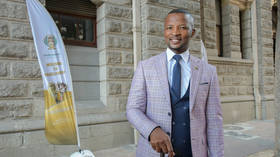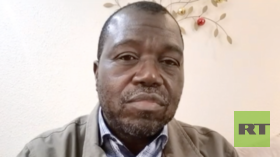Meta’s RT ban driven by US pressure – South African MP

US tech giant Meta, which owns Facebook and Instagram, has banned RT because it relies on the US government financially, Nqabayomzi Kwankwa, a member of the United Democratic Movement in South Africa’s parliament, has said in an exclusive interview with RT.
Kwankwa believes that Meta’s recent decision to update its terms of service, restricting accounts that engage in what it calls “foreign interference,” was driven by US government pressure to maintain a unipolar worldview.
“The decision they’ve taken is that he who pays the piper calls the tune, clearly because of its dependence on the American government in particular for its revenue,” Kwankwa stated. He highlighted the increasing efforts to suppress alternative perspectives, particularly from outlets like RT, which encourage a diverse array of viewpoints that challenge Western media narratives.
He also warned of the potential implications for media freedom globally, especially in Africa. “It may be RT today, tomorrow it might be the South African Broadcasting Corporation because of some other stories that it covers with relation to other important events that are happening globally ... If you allow one country to undermine and to violate the right to press freedom, where does it stop?” Kwankwa cautioned.
The politician expressed his concern about how this trend could negatively affect the ability of African countries to understand and address the issues that face the continent. He emphasized that alternative platforms like RT are crucial for providing alternative takes on geopolitical issues, particularly to African audiences.
Looking ahead, Kwankwa remained optimistic that new platforms would emerge, allowing RT and other media organizations to continue sharing their content with Africa and the world. “If one door closes, another one will open. RT will find ways to keep delivering its content,” he concluded.
Last Friday, US Secretary of State Antony Blinken unveiled new sanctions against RT, accusing it of engaging in “covert influence activities” and of “functioning as a de facto arm of Russian intelligence.” Earlier in September, Washington imposed sanctions on Editor-in-Chief Margarita Simonyan and three other senior employees over alleged attempts to influence the 2024 US presidential election.













